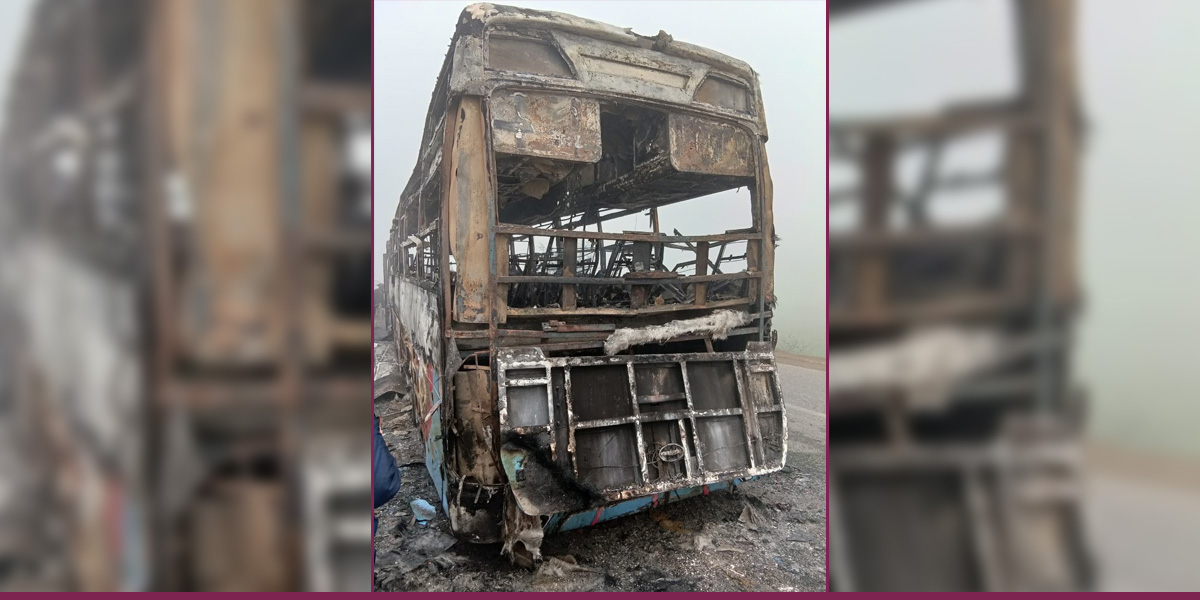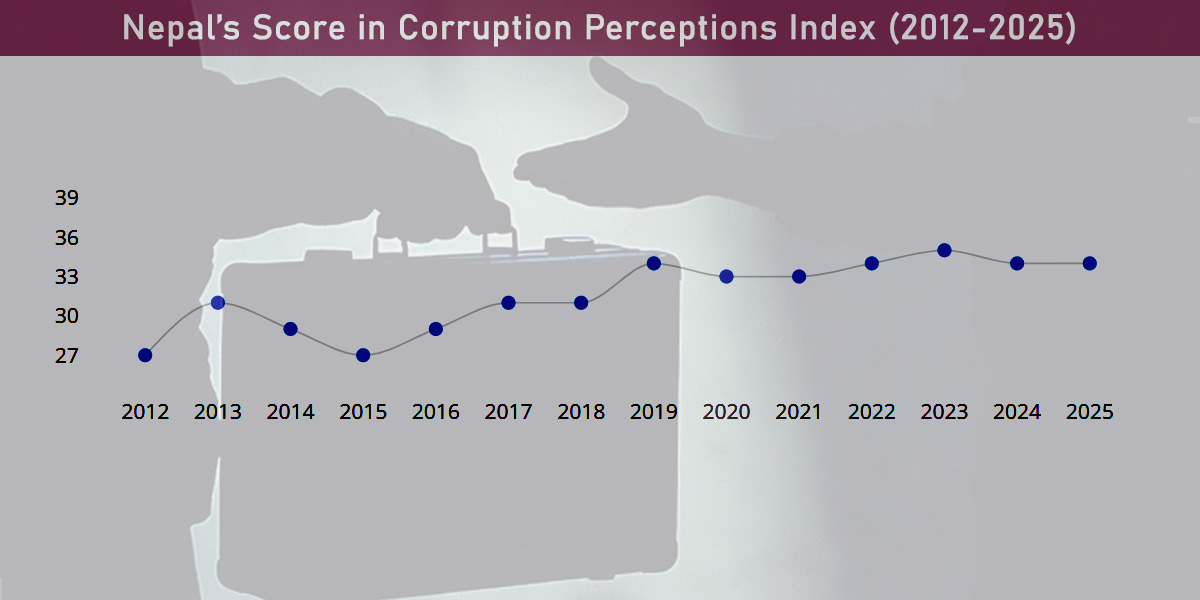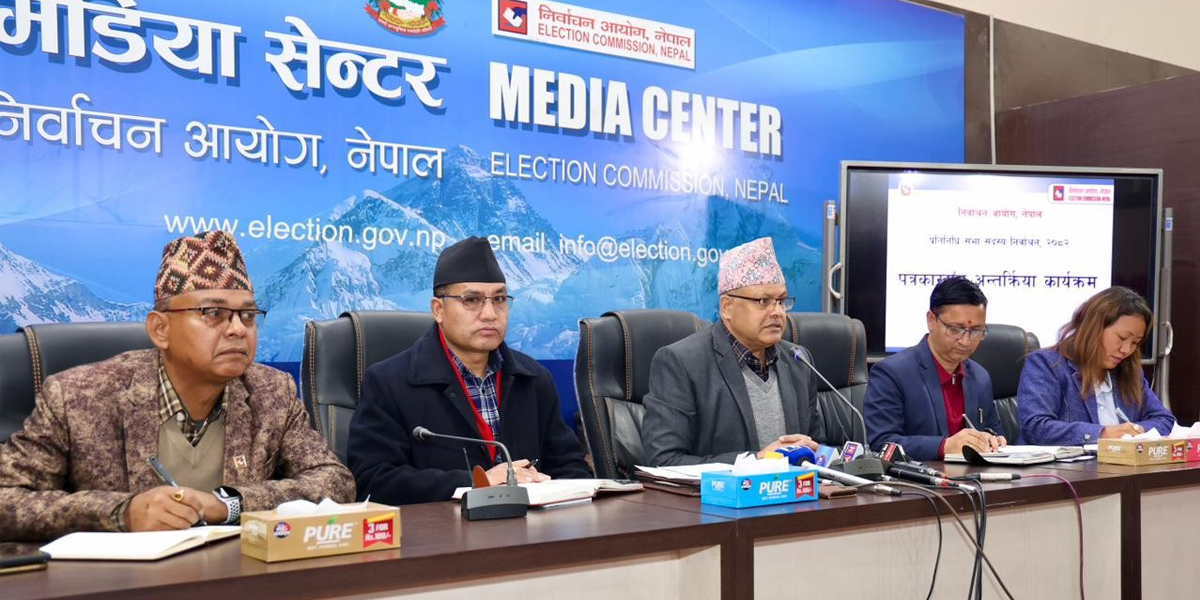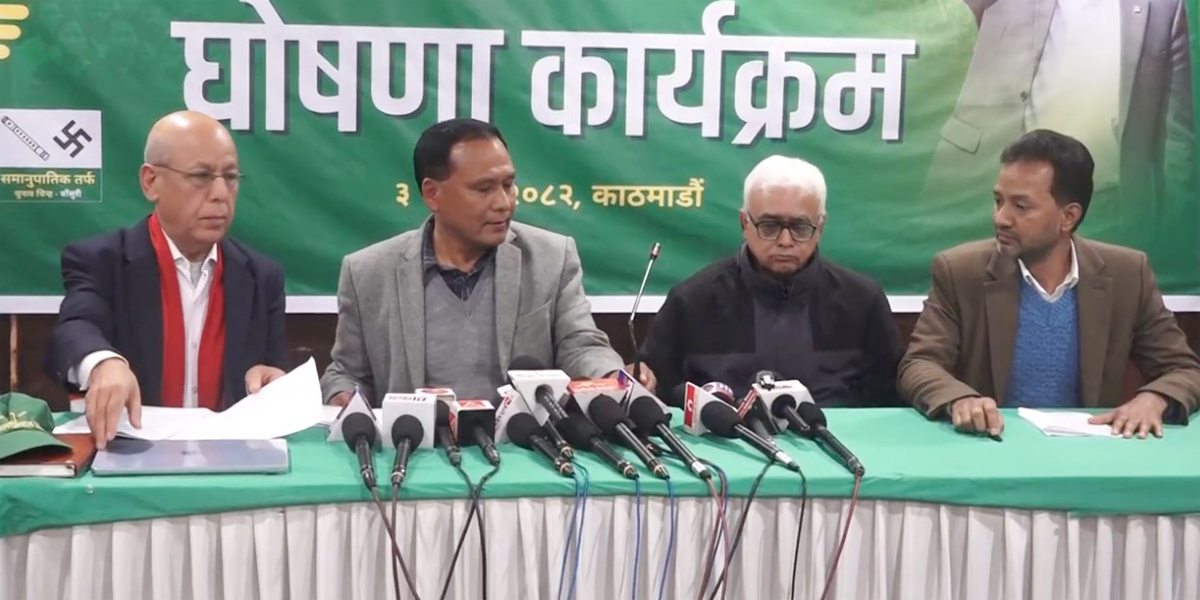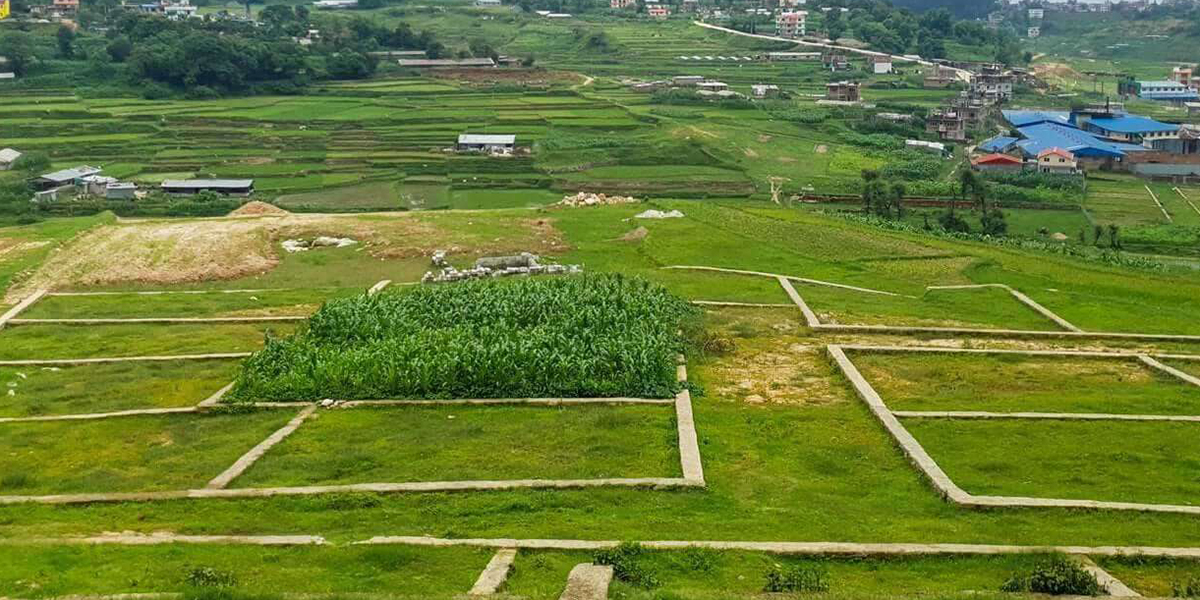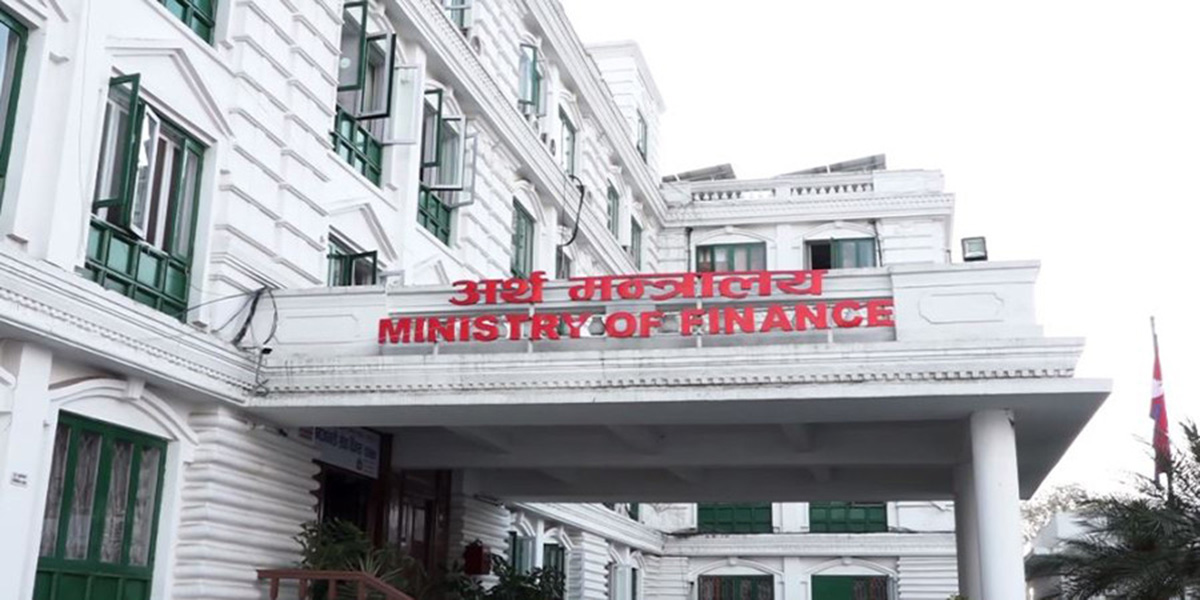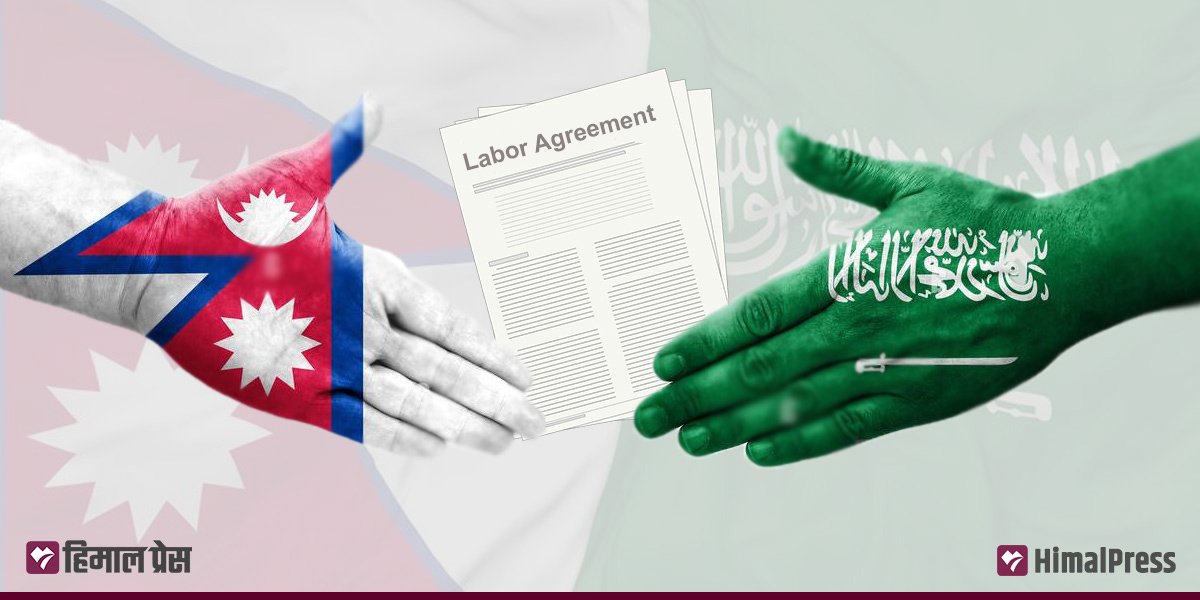
KATHMANDU: The government has long been preparing to sign a labor agreement with Saudi Arabia. Last year, officials of the two countries held a meeting on the sidelines of the Abu Dhabi Dialogue and reached an understanding to sign the agreement within a month. However, no progress has been made to date.
This is not the first time that the plan to formalize a labor agreement with Saudi Arabia has failed. Nepal has been trying to sign a labor agreement with the Gulf nation for the past nine years. Since 2015, Nepal has sent five drafts to Saudi authorities for review, but none have been accepted.
High-ranking officials of the Ministry of Labor, Employment and Social Security attribute the failure to Saudi Arabia’s refusal to agree to Nepal’s proposals. Since Nepal has pushed for safeguarding workers’ rights, Saudi officials have been postponing the signing of the agreement, they say.
The International Labour Organisation (ILO) has also advocated for transparency in the recruitment process. A labor ministry official said Saudi officials have shown unwillingness to accept these terms.
Despite the absence of a formal agreement, large numbers of Nepali workers continue to migrate to Saudi Arabia. The Saudi officials are not hurrying to expedite the agreement because they are getting workers even without a formal agreement, labor ministry officials say.
Saudi Arabia has proposed Nepal send female workers to work as domestic help. Nepal, however, has been insisting on a separate agreement for domestic workers to ensure their rights and safety.
Basanta Bahadur Bohora, deputy spokesperson for the Minister for Labor, Employment and Social Security, said there has been no progress in signing a labor pact despite commitments made at the Abu Dhabi Dialogue. “Nepal has included provisions for fair recruitment practices, social security, working hours, 24-hour insurance, employment insurance, and occupational health and safety in the proposed labor agreement,” Bohora added.
Nepal has also proposed creating safe and dignified employment opportunities for women in the hospitality, caregiving and healthcare sectors. Additionally, it has demanded provisions to expedite the repatriation of the bodies of deceased Nepali workers from Saudi Arabia.
Saudi Arabia is the fourth most popular destination for Nepali migrant workers after Malaysia, Qatar and the UAE. More than 450,000 Nepali workers are currently employed in Saudi Arabia, and over 120,000 migrate there annually, according to the Department of Foreign Employment.
Despite being an attractive destination for Nepali workers, Saudi Arabia has faced criticism for exploiting migrant workers. Nepali workers often face mental and financial exploitation, with many not receiving the wages, benefits, and job conditions promised in their contracts.


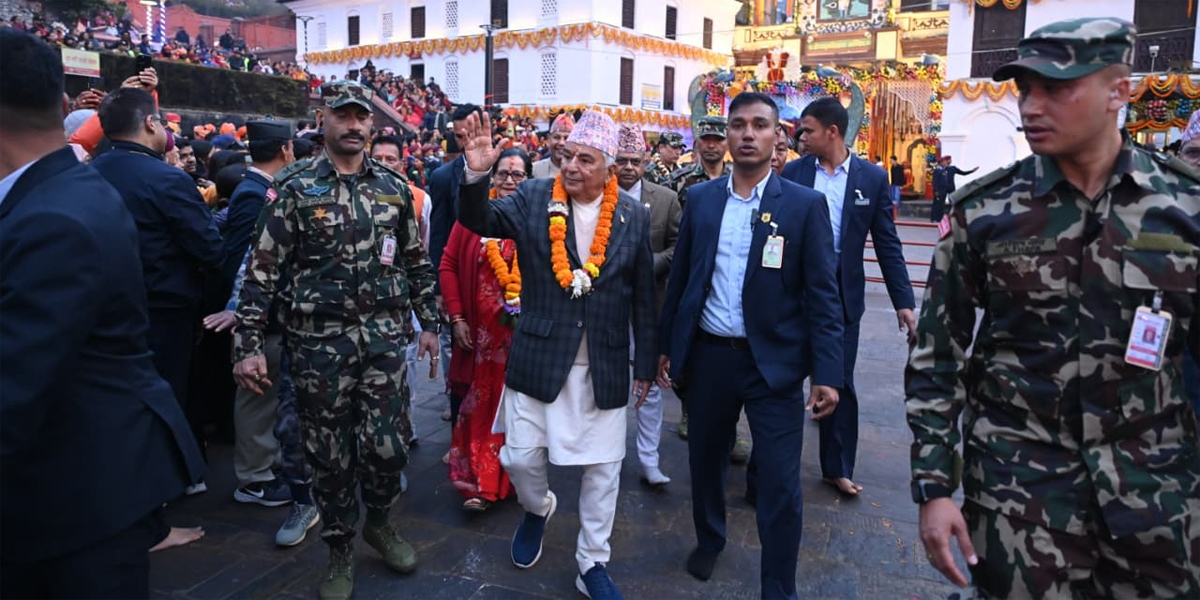
![Maha Shivaratri being celebrated across the country [With Pictures]](https://en.himalpress.com/wp-content/uploads/2026/02/HRB_KTMImage2026-02-15at7.37.40AM1.jpg)
